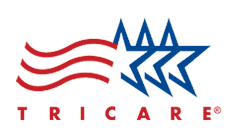Reclaim Your Life with Ethical, Evidence-Based Outpatient Treatment
Methamphetamine addiction can be one of the most destructive forms of substance use—physically, emotionally, and socially. Its powerful stimulant effects often lead to rapid dependency, erratic behavior, and long-term cognitive and physical decline. At Lanier Recovery Center in Atlanta, our outpatient programs offer a compassionate, structured path to recovery tailored to each client’s unique needs, guided by clinical expertise and integrity.
What Is Methamphetamine?
Methamphetamine (meth) is a highly addictive stimulant that affects the central nervous system. It usually appears as a white crystalline powder or in rock-like chunks (crystal meth). Users typically smoke, snort, inject, or swallow meth to achieve intense feelings of energy, focus, and euphoria. However, these effects are short-lived and followed by devastating crashes, cravings, and mental health deterioration.
Illicit meth is often made in makeshift labs using toxic chemicals, making it especially dangerous and unpredictable in potency.
How Meth Affects the Brain and Body
Short-term effects include:
- Intense euphoria and increased energy
- Hyperactivity and talkativeness
- Decreased appetite
- Heightened attention and wakefulness
- Increased heart rate and body temperature
Long-term effects include:
- Severe dental problems (“meth mouth”)
- Weight loss and malnutrition
- Psychosis (paranoia, hallucinations, delusions)
- Cognitive impairment and memory loss
- Violent behavior or mood swings
- Skin sores and infections from picking
Chronic meth use alters brain chemistry, damages dopamine systems, and can take years to fully recover from.
Methamphetamine Use Statistics
- More than 2.5 million Americans reported methamphetamine use in 2021.
- Meth-related overdose deaths increased by 50% between 2020 and 2021.
- In Georgia, methamphetamine is one of the most commonly seized drugs by law enforcement.
- Over 70% of counties in Georgia reported meth as the top drug threat in their communities.
Recognizing Meth Addiction
Meth addiction develops quickly and is often accompanied by noticeable physical, psychological, and behavioral changes.
Signs of meth addiction:
- Rapid weight loss and extreme energy shifts
- Extended wakefulness followed by long crashes
- Mood instability or aggression
- Obsessive behavior or repetitive movements
- Skin sores, dental decay, or twitching
- Financial problems or criminal activity to obtain drugs
- Isolation or estrangement from family and friends
Daily Challenges of Meth Addiction
Living with meth addiction often means:
- Feeling unsafe in your own mind and body
- Hyper-paranoia or hallucinations
- Dangerous behaviors while high
- Profound emotional instability
- Financial hardship or legal trouble
- Deep exhaustion and hopelessness after crashing
We help clients stabilize their bodies and minds while developing the tools needed for long-term recovery.
How We Treat Meth Addiction at Lanier Recovery Center
Our outpatient treatment for methamphetamine addiction is designed to meet the unique mental, physical, and emotional demands of meth recovery. We address both the addiction itself and any co-occurring disorders, such as anxiety, depression, or trauma.
Partial Hospitalization Program (PHP)
PHP provides full-day support for those needing daily structure, medical monitoring, and intensive therapy. This level is best for those in early recovery or coming from detox/residential treatment.
Intensive Outpatient Program (IOP)
IOP offers 3–5 days per week of therapeutic programming, including group therapy, one-on-one sessions, skill building, and recovery planning. It balances structured care with life responsibilities.
Outpatient Program (OP)
OP is designed for clients who are stepping down from IOP or have stabilized. It includes weekly therapy, relapse prevention, and continued support.
Our clinical approach includes:
- Cognitive Behavioral Therapy (CBT)
- Dialectical Behavior Therapy (DBT)
- Trauma-informed therapy
- Psychiatric support for dual diagnosis clients
- Group therapy and recovery coaching
- Relapse prevention and coping skills
- Family therapy and education
Why Choose Lanier Recovery Center?
- Deep expertise in stimulant and methamphetamine addiction
- Individualized care plans tailored to your lived experience
- Strong clinical foundation and ethical standards
- Supportive outpatient model for real-world healing
- Focus on restoring dignity, clarity, and long-term purpose
Frequently Asked Questions
Can I quit meth on my own?
While some individuals attempt to stop using meth without support, the psychological withdrawal symptoms can be overwhelming. Professional treatment improves outcomes and safety.
What does meth withdrawal feel like?
Symptoms may include fatigue, depression, anxiety, intense cravings, sleep disturbances, and lack of motivation.
How long is treatment for meth addiction?
Clients typically begin with 8–12 weeks of PHP or IOP, followed by ongoing outpatient care and aftercare planning. Recovery is a long-term process that requires ongoing support.
Does insurance cover meth addiction treatment?
Yes. We accept most major insurance plans and will verify your benefits before admission.
Start Meth Recovery Today
You don’t have to keep living in the chaos and exhaustion of meth addiction. At Lanier Recovery Center in Atlanta, our team is here to help you regain clarity, rebuild emotional strength, and move forward with confidence. Call us today for a confidential assessment and take the first step toward lasting recovery.











